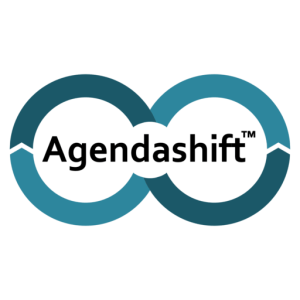As demonstrated by the models-sources-inspirations picture below, I like my models. If you’ve read my third book Right to Left, you’ll know also that I have little time for the idea that there is one best model – one best Agile framework, for example. And the fun isn’t in choosing between them, not even in recognising what each of them can bring, but in integrating them. And it doesn’t stop there: this is not a one-shot process design exercise, but a process of continuous transformation. In short, I’m a pluralist, and I love to see what happens when models and their underlying patterns are allowed to combine.
Believe it or not, I am a picky though. In one of our weekly community Zoom sessions (see #community in Slack), that pickiness resulted in a conversation that was outside our usual norms (if the truth be told I was abrupt to the point of rudeness) and I reflected afterwards on what happened. Happily, we cleared things up quickly and had a much healthier conversation the following week after I had the chance to turn something heartfelt into something more articulate. What follows is a summary.
If Agendashift has taught me anything, it is to be very careful with assumptions. Credit for this goes to Clean Language, which turns the dial up to 11 on the discipline of its practitioners to minimise the influence of their private assumptions (which are SO not the point) on their conversations. This discipline applies most to their explicitly Clean conversations but it rubs off elsewhere in ways that need not mean “coachiness” when that is not called for. Practicing it subtly trains your brain to recognise when you are imposing yourself in ways that aren’t helpful.
You see that attention to assumptions in Agendashift’s outside-in strategy review. The way we make explicit its carefully minimal assumptions is of great help to the facilitator. See my recent Cutter paper for details (announcement included in my post last week); they’re also in Right to Left (chapter 5) and there will be brief coverage in the forthcoming 2nd edition of Agendashift also.
I tend to avoid models that encourage me to make assumptions about what is going in someone’s mind, how they will behave, how they will develop, and so on. The same at team level and organisation level, and I have come to be particularly sceptical of extrapolations from one of those levels to another. The replication crisis (en.wikipedia.org) gives me pause also. For better or for worse therefore, you won’t see Agendashift depending on many “popular” models of psychology, development, or maturity. This is not to say that they are valueless, rather that they make potentially unreliable foundations.
What I do appreciate:
- Challenges to my own assumptions
- Ways to moderate the impact of unsafe assumptions
- Ways to bring assumptions and misalignments to the surface at the right time
- Ways to encourage people to find their own solutions in the pursuit of outcomes (authentically shared outcomes most especially)
- Ways to sustain all of the above – engines of transformation
And supporting those:
- Models that have withstood scrutiny over a length of time
- Models that treat the individual’s agency, creativity, and problem-solving ability with the utmost respect (you’ll permit me some personal values and base assumptions there I trust)
- Models that help to scale up the preceding
Thankfully, the list of helpful and reliable models compatible with my outlook of optimistic pluralism outlook is long, a fact to which my Models, Source, and Inspirations picture attests. And please do not take the omission of a favourite model of yours as a snub; if I don’t have time to throw yours into the Great Model Collider™ in the hope that something interesting will fly out, perhaps you (or someone else) will.
Opinions mine, strongly held it would seem. Thank you Andrea Chiou and Tom Ayerst for putting up with me – we got there in the end 🙂
What if we put agreement on outcomes ahead of solutions?
Agendashift™: Serving the transforming organisation
Agendashift Academy: Leading with Outcomes | Home | Store
Links: Home | Subscribe | Become an Agendashift partner | Events | Contact | Mike
Resources: Tools & Materials | Media | Books | Assessments
Blog: Monthly roundups | Classic posts
Community: Slack | LinkedIn group | Twitter

